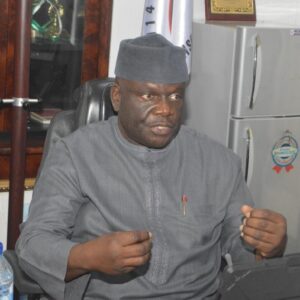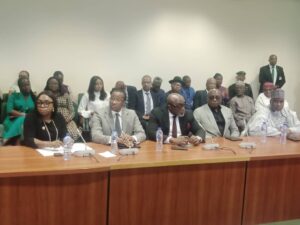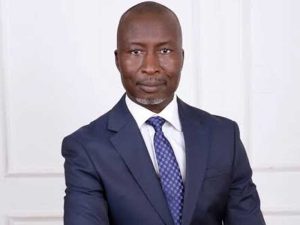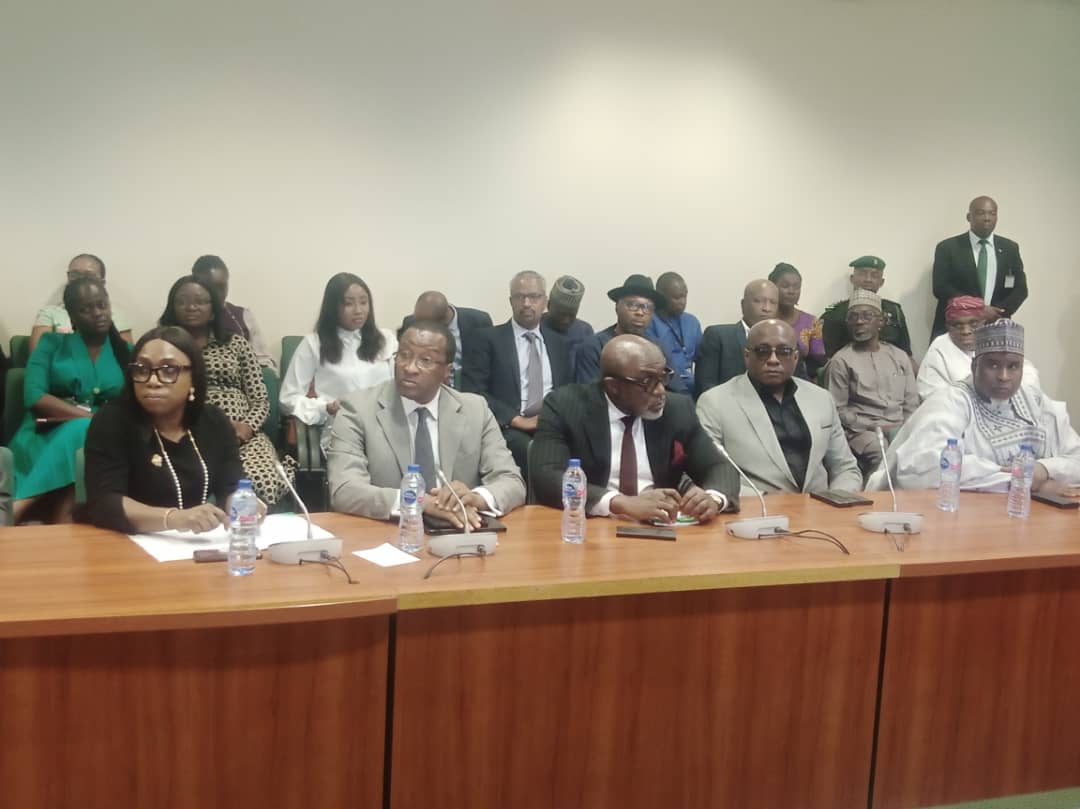
Airline operators and other players in the aviation industry are faced with and why the capital-intensive business yields very low profit margins
Regulated by the International Civil Aviation Organisation (ICAO), the aviation industry adheres to international standards in every aspect of its operations, and countries domesticate the regulation in tandem with their own peculiarities.
Nigeria has its own peculiarities, especially in the area of funding. Aviation agencies that offer services on revenue recovery like the Nigeria Civil Aviation Authority (NCAA), the Nigerian Airspace Management Agency (NAMA), are made to pay 40 per cent of their earnings to the federation account. The payment is deducted from the source and remitted to the treasury single account (TSA). Other agencies like the Federal Airports Authority of Nigeria (FAAN) and the Nigerian College of Aviation Technology (NCAT), Zaria are also made to pay 40 per cent of their earnings to the federal government.
Aviation experts argue that these funds paid to the federal government are actually needed to fund projects in the agencies. It is not as if these monies paid to the federal government are kept for the agencies or given back to them when they needed to execute projects. The monies are paid into the pool of the huge government treasury where accountability is opaque and the funds follow the destiny of other funds in the endless miasma of what happens to government revenues.
Growing the Agencies
Industry observers suggest that government ought to allow these agencies to keep their monies, which they will use to maintain infrastructure and improve their services, pay salaries and execute projects; that what government should do is to monitor and inspect the use of these monies. Currently many facilities in the aviation industry are obsolete, some need expansion and FAAN does not have money to renew airport infrastructure, including the terminals, runways, install airfield lighting; yet it remits 40 per cent of its earnings to the federal coffers.
NCAA needs funds to train its personnel, pay higher wages to retain top technical officials and also expand its offices at some of the airports. NAMA projects are capital intensive, but it goes cap in hand to request funds from government while the Ministry of Aviation is niggard with funds approval.
A NAMA official told THISDAY, “We are service providers, we are not revenue making. What we do is revenue recovery and we need the money they take from us and that is why everywhere is stagnated.”
Also, NCAT needs money to equip the college with simulators, other teaching equipment and train its personnel. In fact, what the school earns cannot sustain it so it has to be continuously funded by the federal government, which is what other countries do for that strategic institution. This is because aviation training institution is strategically important for the development of air transport of any country.
Effect of Remittances
Recently the Director General of NCAA, Captain Musa Nuhu, confirmed that the agency still pays the 40 per cent deduction to the federal government.
“Whatever we do they take 40 percent at source. If Air Peace pays me N10 million to go and inspect their aircraft, the government takes 40 percent. We can’t tell Air Peace to go and give the government N4 million, so we have to take from our own money to complete it,” he said.
Nuhu also explained that they need to train staff, and they need to pay as high as others like the airlines and other organisations in the industry in order to retain certain technical personnel whose duties are critical for the input of the agency.
“My staff leave the agency regularly. That is the problem of salary. You are earning N500, 000 monthly and a particular airline comes and gives you N1.5 million monthly, what are you going to do? It is unfortunate, that is the way it is and that is why we need to be removed from that salary structure. Kenya as of two years ago paid some of its technical staff about $10,000 monthly and they were going to increase it. So, you pay your people peanuts and you expect them to do magic that is not possible,” he said.
Experts believe that if NCAA is allowed to hold on to its revenues and it is removed from government salary structure, it can attract the best professionals locally and internationally, “but currently not many of such professionals are ready to work for the agency at that salary scale. This explains why it recruits technical personnel who have retired.”
The immediate past Managing Director of FAAN, Capt. Rabiu Yadudu, disclosed that in 2022, FAAN remitted about N44 billion of its revenue to the federation account.
He noted that such deductions contravened the new FAAN Act 2022, which stipulates that all revenue generated by the agency must be ploughed back into the sector for the purpose of infrastructure development.
The federal government had in October 2022, increased the compulsory contribution to federation account by its revenue generating agencies to 40 per cent from 25 per cent.
With this, 40 per cent of the internally generated revenues (IGRs) by government agencies, which is sent to the Treasury Single Account (TSA), is now meant for the federal government to execute projects.

Also, the Rector of NCAT, Captain Alkali Modibbo, said that the College has lost many senior instructors to institutions that pay them irresistible emoluments and that due to inadequate funding, the school cannot recruit such high-quality staff and further suggested that such remittances by the federal government ought not to be because there so many things to do in the school, if there is adequate funding.
Interest for airlines
Just as aviation agencies face funding challenges, Nigerian carriers also grapple with lack of funds because it is difficult to source funds from banks at 25 per cent interest rate. Sadly, Nigerian airlines are not able to secure credit facility from international financiers due partly to the perception that Nigeria is a high-country risk area.
The Director General of NCAA recently confirmed that Nigerian carriers are going through a lot in terms financing their operations and disclosed that the regulatory authority has been helping the airlines to survive by giving them different kinds of support.
“Nigerian airlines are operating in a very, very difficult environment. An airline cannot operate in isolation of the economy it is operating in and Nigerian economy is in very difficult times. The cost of financing is 25 per cent, which is killing to start with. You take a loan and you are paying 25 percent of whatever you make to the bank. You are not talking of your expenses, your cost, your current and long-term liabilities. Quite a few of them are in financial straight and some are okay. So that is the way it is. It is a very, very difficult environment for the airlines and we also do sincerely sympathize with them and we will try and see where we have flexibility to make life easy for them. Like the issue of insurance, the insurance is from Lloyds of London
; from other countries while it requires a huge amount of foreign exchange.
“Normally, insurance they say is for one year, but we know an airline that has 20, 30 aircraft like Air Peace for it to pay insurance for one year will be difficult, that is why we say pay quarterly, at least to reduce the financial burden, especially on the requirement of getting foreign exchange at a time. So, we try and assist the airlines in that area, and those who have debts, we reach agreement with them. If I have one billion with you, I am not asking you to pay that one billion to me, because if I do that, I am going to kill your business. So, we reach an MoU and they pay an amount that will not cripple their operation. But also, they have to pay a reasonable amount to clear those outstanding debts. Those are the areas we have flexibility with the industry,” the director general said.
He also acknowledged that there are too many charges paid by airlines and others who do business at the airports, citing the arbitrary payments charged the airlines, exporters and importers by government agencies at the airports. He pointed out that these are disincentives doing business at the airports.
“There are lots of charges that have nothing to do with aviation aeronautical charges. It is other organisations that are in the airport that put these charges. But sometimes as Nigerians, we need to all sit down as a team and see the damage we are doing to our country. Like in Lagos, there are so many charges, you want to export your cargo, there are so many charges. By the time you pay those charges, your produce is not even competitive any more. That is why you see a lot of planes bring cargo, and they leave empty out of Nigeria, because exports are not viable, Nuhu stated.

High Cost of Ticket
It is believed that increase in passenger traffic will not grow rapidly in the market because of the cost of flight tickets. Airlines do not receive high patronage because the number of Nigerians that travel by air to domestic destinations is less that 8 per cent, put at 12 million passengers a year.
Airfares on domestic flight service have been on the increase in response to cost of operation, making it difficult for some Nigerians to continue to travel by air and without large turnover in passenger traffic, airlines will barely break even.
It was learnt that the major factors responsible for the high fares include multiple taxation, the cost of operating the airports and multiple charges levelled against the airlines by aviation agencies.
All these add to the high cost of aviation fuel, known as Jet A1, and are passed to the passengers; that average fare is now N65,000 for one hour flight and over N80, 000 during peak periods.
Nigerian travellers pay five per cent ticket sales charge (TSC) and 5% cargo sales charge (CSC) through the airlines.
But in addition to TSC and CSC, NAMA still collects from the domestic airlines navigational and terminal charges, while international airlines flying across Nigeria’s airspace pay overflier charges.
Also, the Federal Airports Authority of Nigeria (FAAN) collects from the airlines passenger service charge (PSC) in addition to landing and parking charges and from both the domestic and international airlines, FAAN collects fuel surcharge of N2.50 per litre (this amount may have increased).
These are heavy financial burden to the airlines because as the passengers pay more airfares, less people will fly and airlines will make less revenue. Because airlines borrow funds with high interest rate, they find it difficult to expand their operation. So, government should withdraw the 40 per cent at source remittances from aviation agencies and government should review the charges at the airport in order to give incentive to airlines and also to exporters.






